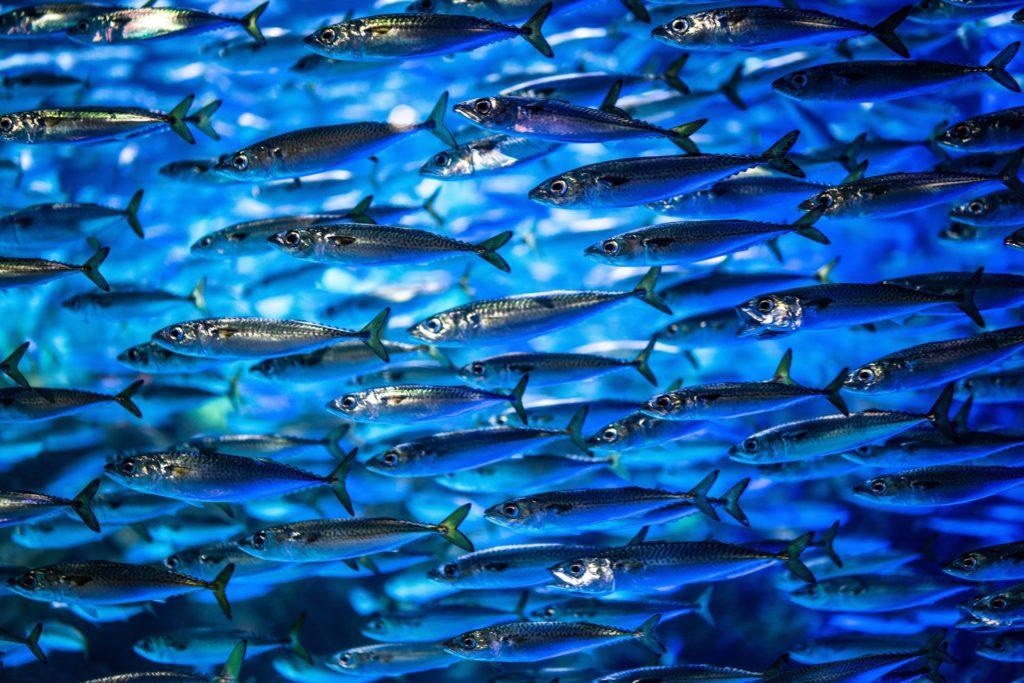According to a new study, the cold versions of heatwaves, marine cold spells — periods of remarkably cold water — have the ability to hurt or help the ecosystems they hit. Marine cold spells are becoming less intense and less frequent as the atmosphere and oceans warm.
 As the oceans warm, marine cold spells—a cold snap in the water—are becoming less frequent and less severe, according to a new study in the AGU journal Geophysical Research Letters. Image Credit: Fengyou Wan/Unsplash.
As the oceans warm, marine cold spells—a cold snap in the water—are becoming less frequent and less severe, according to a new study in the AGU journal Geophysical Research Letters. Image Credit: Fengyou Wan/Unsplash.
Scientists have found that currently the oceans undergo just 25% of the number of cold spell days they did in the 1980s, and cold spells are nearly 15% less intense. Weaker cold spells can imply they are less likely to produce mass die-off events.
However, fewer cold spells also imply refuges and recovery periods from marine heat waves are vanishing.
It is the first study to measure and compare the altering nature of marine heat waves and cold spells over several past decades on an oceanwide, global scale.
The study has been reported in the AGU journal Geophysical Research Letters, which publishes short-format and high-impact studies with impacts covering the Earth and space sciences.
Recently, studies have focused on heat waves and warm ocean temperature events, less so the cold events.
Yuxin Wang, Study Lead Author and Ocean and Climate Scientist, University of Tasmania
Wang stated that since marine cold spells tend to have both positive and negative effects, comprehending when, where, and why these spells happen is crucial for anticipating their existence in the future.
Forecasting cold spells can be significant for fisheries’ long-term planning and for guaranteeing catch limits are viable.
Extreme events, either warm or cold, can bring an ecosystem to the edge. Establishing the oceans’ baseline climatology and sensitivity of heat waves and cold spells to temperature changes, like they did in this study, is a burning question for the community.
Sofia Darmaraki, Physical Oceanographer, National and Kapodistrian University of Athens
Darmaraki was not a part of the study.
Due to anthropogenic climate change, marine heat waves, like heat waves over land, are natural phenomena that are becoming more frequent and intense in a few places. At the same time, marine cold spells are natural, but their rates are altering throughout the world.
Over the last few years, cold spells have happened approximately 10 days annually throughout the world. It is a remarkable drop from nearly 40 days annually in 1985.
To comprehend when and where marine cold spells take place and how those patterns have altered over time, Wang and her collaborators examined sea surface temperature data from 1982 to 2020. They searched for periods of extremely hot or cold temperatures.
They discovered the oceans are warming, in proportion to global warming trends, and sea surface temperatures are becoming variable over time. That variability results in marine heat wave and cold spell intensities altering at different rates. This complicates scientists’ attempts to forecast.
In marine cold spells, establishing global trends and their relationship to global warming is an essential step. Wang stated, however, additional studies are required to restrict regional and local effects. Those local effects consist of impacts on fisheries, which could be either positive or negative.
Marine cold spells play dual roles in influencing ecosystems. They can cause devastating impacts, like coral bleaching and mass mortality events. But cold spells can offset the impacts of heat waves.
Yuxin Wang, Study Lead Author and Ocean and Climate Scientist, University of Tasmania
“Extreme events affect coastal communities and economies, but members of the public might not be aware of how they’re going to intensify in the future. We need to get the word out,” stated Darmaraki.
“Information about the underlying, physical causes of these extreme events can help improve forecasting, which can lead to the development of early warning systems. That information can be provided to fisheries and other stakeholders, and they can collaborate on the best adaptations, the best path forward,” concludes Darmaraki.
The better communities are aware of what to expect, the better they can prepare.
Journal Reference:
Wang, Y., et al. (2022) Understanding the Changing Nature of Marine Cold-Spells. Geophysical Research Letters. doi.org/10.1029/2021GL097002.